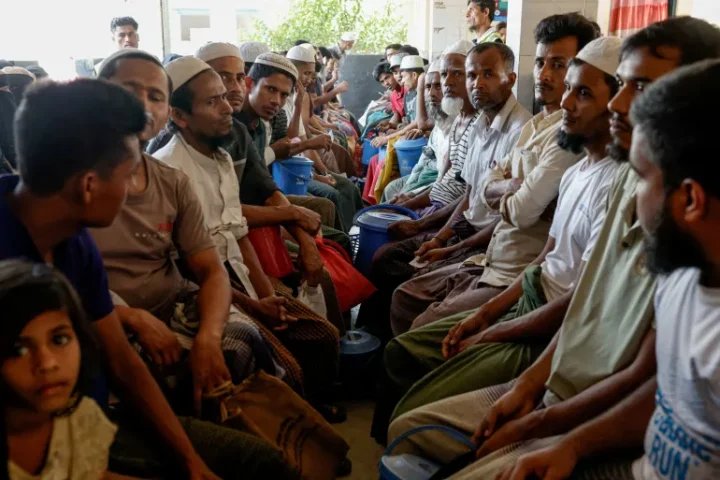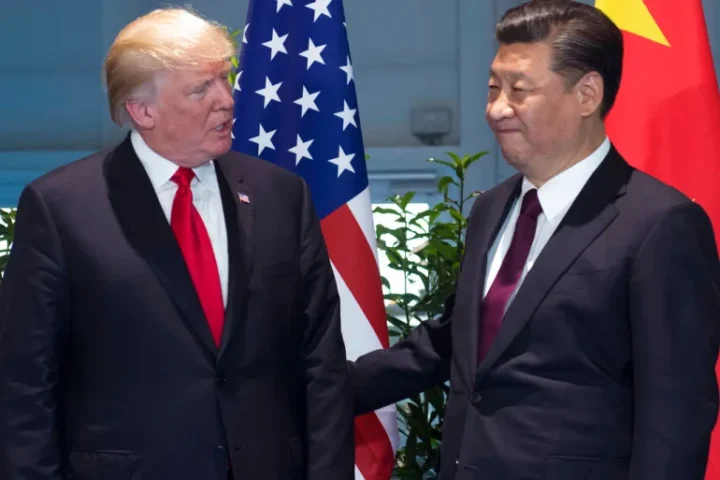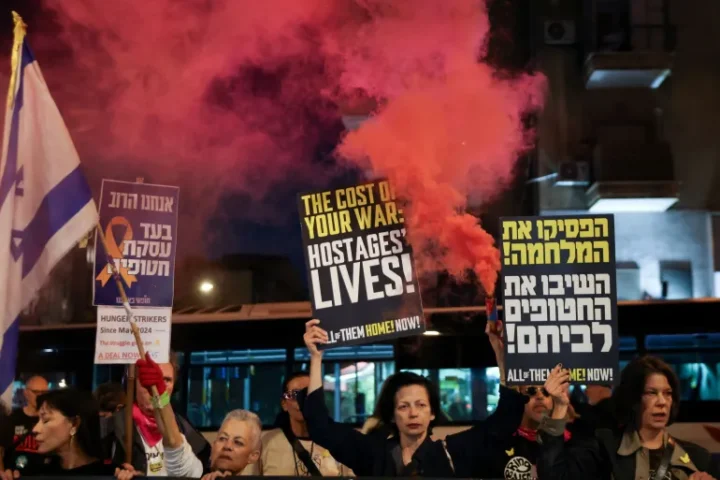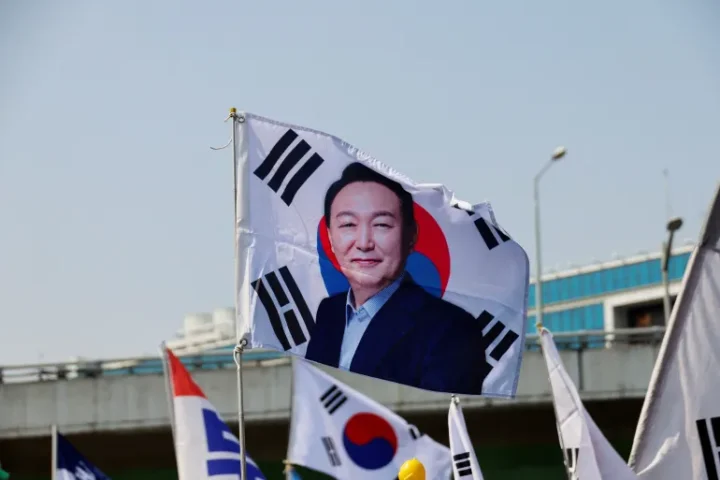Verbal instructions given to officials who take part in TV debates to be ‘extremely cautious’ on religious matters, reports say.
Leaders of India’s Hindu nationalist ruling party have instructed officials to be “extremely cautious” when talking about religion on public platforms after derogatory remarks about the Prophet Muhammad drew protests from Muslim nations.
Two leaders of Prime Minister Narendra Modi’s Bharatiya Janata Party (BJP) said verbal instructions were given to more than 30 senior officials and some federal ministers who are authorised to take part in debates hosted by Indian news channels often broadcast live to millions of viewers, the Reuters news agency reported on Tuesday.
“We don’t want party officials to speak in a way that hurts the religious sentiments of any community … They must ensure the party’s doctrine gets shared in a sophisticated manner,” said a senior BJP leader and federal minister in New Delhi, according to the report.
With about 110 million members, mainly Hindus, the BJP is the world’s largest political party, while Muslims comprise about 13 percent of India’s 1.35 billion population.
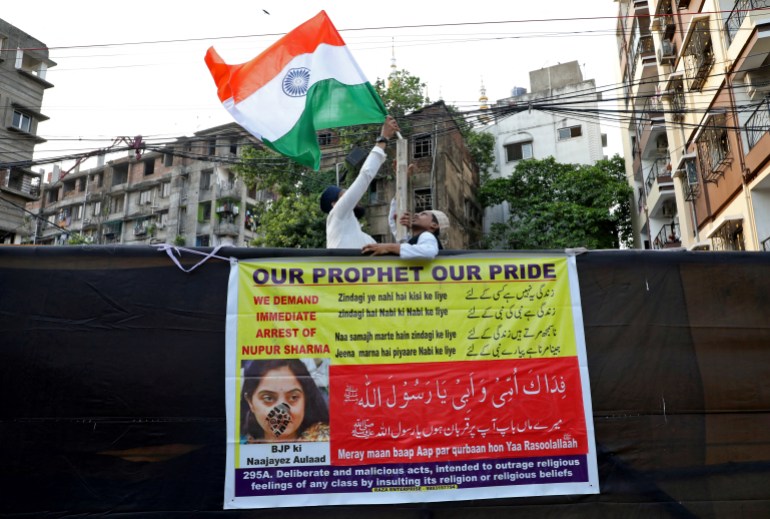
Last week, the BJP suspended its spokeswoman Nupur Sharma and expelled Delhi media cell head Naveen Kumar Jindal after Muslim nations demanded apologies from the Indian government and summoned diplomats to protest against anti-Islamic remarks made during a TV debate.
Qatar, Saudi Arabia, Oman, the United Arab Emirates, Indonesia, Afghanistan, Pakistan and Iran were among the nations that made their complaints public.
The influential 57-member Organisation of Islamic Cooperation (OIC) said in a statement that the insults came in the context of an increasingly intense atmosphere of hatred towards Islam in India and systematic harassment of Muslims.
On Wednesday, Iranian foreign minister Hossein Amirabdollahian arrived in New Delhi for bilateral talks with India – the first visit by a senior minister of an OIC member nation after remarks on the prophet triggered outrage in the Arab world and other Muslim-majority countries.
Iran had summoned the Indian envoy in Tehran to lodge its protest against the anti-Islam remarks made by Sharma and Jindal.
BJP youth leader arrested
Meanwhile, police in northern Indian state of Uttar Pradesh arrested a BJP youth leader for posting anti-Muslim comments on social media, officials said on Wednesday.
Harshit Srivastava was arrested in Kanpur city following communal tensions last week during a protest by Muslims to denounce the anti-Islam comments.
“We arrested the local politician for making inflammatory remarks against Muslims,” said Prashant Kumar, a senior police official, adding that at least 50 people were taken into custody following the tensions in Kanpur.
Srivastava’s lawyer was not available for a comment.
Sporadic unrest was reported in other parts of the country over the anti-Islam comments by the BJP’s Sharma.

Members of Muslim groups in India said it was the first time influential foreign leaders had spoken out against what they called the humiliation experienced by the minority community.
“Our voices have finally been heard, only world leaders can nudge Modi’s government and his party to change their attitude towards Muslims,” said Ali Asghar Mohammed, who runs a voluntary rights group for Muslims in Mumbai city.
India’s Muslims have felt more pressure on everything from freedom of worship to wearing the hijab (head scarves) under Modi’s BJP. There were Hindu-Muslim clashes during religious processions recently, following deadly riots in 2019 and 2020.
Although the party has denied any rise in communal tensions during Modi’s reign, the BJP rule has emboldened hardline Hindu groups in recent years to take up causes they say defend their faith, stoking a rise in anti-Muslim sentiment.
The US State Department, in an annual report on international religious freedom released last week, said that attacks on members of minority communities, including killings, assaults and intimidation, took place in India throughout 2021.
India’s foreign ministry said on Monday the offensive tweets and comments did not in any way reflect the government’s views.
“We are not barred from speaking on sensitive religious issues, but we must never insult the basic tenets of any religion,” said senior BJP spokesperson Gopal Krishna Agarwal.
Modi in recent years has improved economic ties with energy-rich Muslim nations, the main source for India’s fuel imports, but relations have come under stress from the anti-Islamic comments by the two BJP members, foreign policy experts said.


